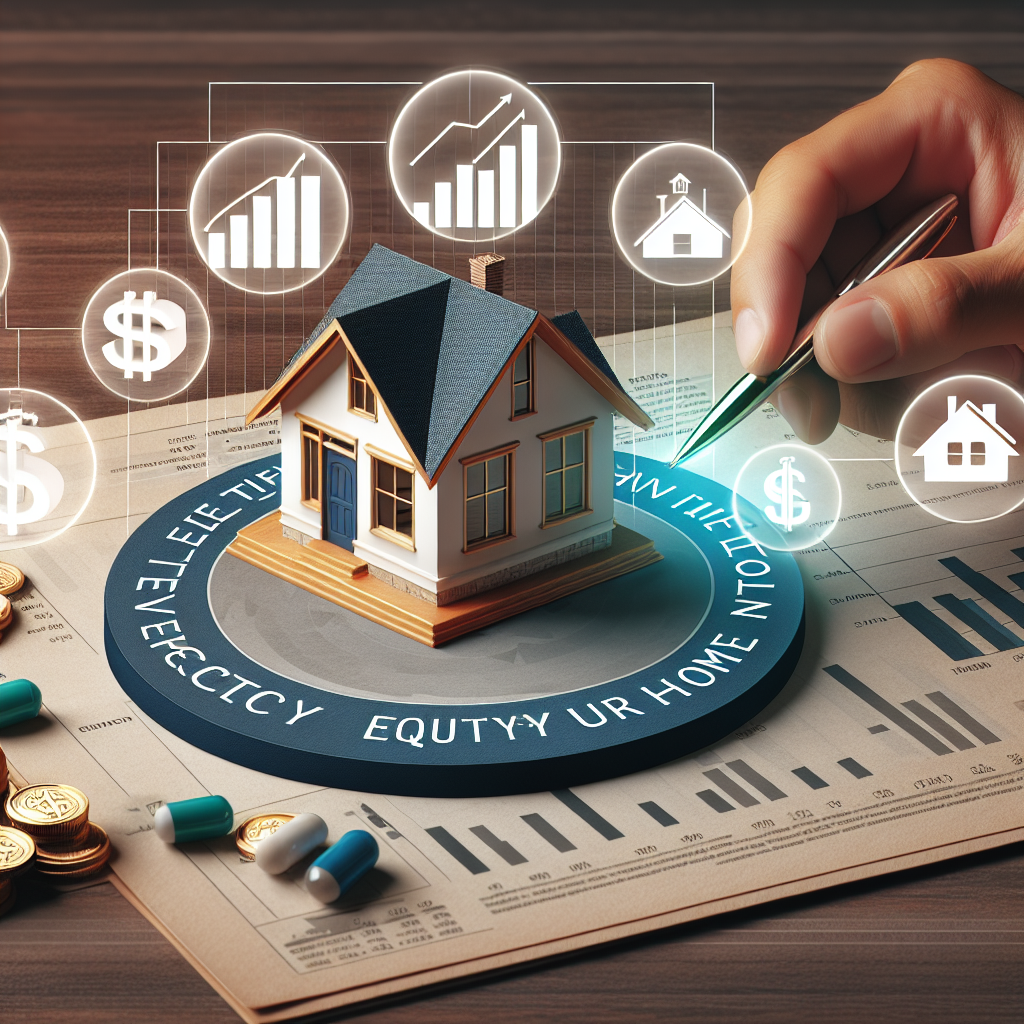Understanding Home Equity
What is Home Equity?
Home equity is essentially the portion of your home that you truly own. It’s calculated by taking the current market value of your home and subtracting any outstanding mortgage balance. So, let’s say your house is worth $300,000 and you owe $200,000 on it; you have $100,000 in equity.
It’s important to measure your home’s value accurately, as it increases or decreases over time. Understanding how equity grows can empower you to make smarter financial decisions. You might have inherited your home, added value through renovations, or even just benefited from a booming market.
The beauty of home equity is that it’s a valuable asset. You can tap into it without losing any ownership of your property, which is a major perk. So, when done wisely, leveraging this equity can fuel various investments!
How Equity Builds Up
Equity builds up in a few ways: paying down your mortgage, rising property values, and home improvements. Every time you make a payment on your mortgage, you chip away at the principal, increasing your equity bit by bit.
Additionally, if your neighborhood is hot and property values surge, that directly inflates your home’s value and your equity without any extra effort on your part. Home renovations, like a new kitchen or an added bathroom, can also significantly increase your home’s worth, leading to greater equity.
It’s a gradual process but can have amazing long-term benefits. So, stay informed about market trends and consider investing in those high-return home improvements to maximize equity!
The Benefits of Tapping into Equity
Using home equity can be beneficial for financing big-life expenses, like a child’s education or retirement. Worst-case scenario, if you leverage equity to invest in the wrong market and lose money, you’ve still got your home!
Another major perk is the lower interest rates associated with home equity loans and lines of credit compared to personal loans and credit cards. This can make large purchases or investments far more feasible.
Lastly, any profits you generate from investments made with home equity can contribute back to the mortgage repayment, creating a beneficial cycle. Building wealth through strategic investments can enhance your financial situation significantly.
The Different Ways to Access Equity
Home Equity Loan
A home equity loan is a straightforward option for many. In essence, it’s a second mortgage that allows you to borrow a lump sum against your home’s equity.
These loans usually come with fixed interest rates and payment terms, making it easy to know exactly how to budget for it. They’re great for large one-time expenses, but be cautious—missing payments can lead to losing your home.
In my experience, it’s always wise to have a solid repayment plan in place before taking one on. Otherwise, you could end up in hot water and feeling the stress of those monthly payments!
Home Equity Line of Credit (HELOC)
A HELOC is like having a credit card, but it’s secured by the equity in your home. You can draw from it as needed and only pay interest on what you borrow, which makes it super flexible!
These lines are typically variable rate, which means your payments can fluctuate. I like to think of it as an emergency fund that you only tap into when you really need it, like for last-minute home repairs or unexpected expenses.
But remember, you still need to manage that responsibly. Just because you can borrow doesn’t mean you should wipe out all your equity! Always think of the long-term game.
Cash-Out Refinance
This option involves refinancing your existing mortgage for more than your current balance, taking the difference in cash. It can be a great way to access a lump sum instantly.
I’ve found this method to be particularly helpful when you can secure a lower interest rate on your overall mortgage. Just be sure to factor in the cost of refinancing—closing costs can add up!
If you’re in a good position, it can be a smart financial move that gives you a bit of breathing room while enhancing your investment potential.
Investment Strategies Using Home Equity
Investing in Real Estate
One of the most popular ways to use home equity is to invest in real estate, whether it’s a rental property or a fix-and-flip project. With a solid plan, you can generate income that far surpasses traditional investment methods.
A rental property can provide ongoing cash flow while your original home continues to appreciate in value. It’s like having your cake and eating it too! Just make sure you do the necessary research on the property and location.
Don’t get moved just by the numbers; consider management duties and potential risks. But when it works, the returns can be significant and well worth the upfront cost.

https://Credit411USA.com
Stock Market Investments
Investing in the stock market can yield high returns, but it comes with risks. With the right mindset and strategy, leveraging equity to invest in stocks could potentially increase your wealth exponentially.
I’ve found that it’s crucial to diversify your investments to mitigate risks. Use the cash from your equity to create an investment portfolio that aligns with your financial goals and risk tolerance.
Bear in mind that market fluctuations can be a rollercoaster, so grounding your strategy on research and advice from trusted financial advisors can make all the difference.
Starting a Business
For the entrepreneurs out there, using home equity as capital to start or expand a business is a thrilling option! With the right plan, your home equity can help you pursue your dreams and ensure financial success.
The key is to conduct thorough market research and create a robust business plan. Many successful business owners have leveraged their home equity to get off the ground or scale up.
While making that leap can be nerve-racking, I believe in calculated risks—when you have the backing of your home’s equity, it can give you the funding needed for that next level!
Managing Risks Effectively
Understanding Market Trends
To mitigate risks, it’s indeed essential to have a good grasp of market trends. Keep your ear to the ground to understand how the real estate market is moving in your area and nationwide.
Tools like online market analysis and local real estate reports can provide insight. Reviewing this data regularly can help you make informed decisions about when to tap into your equity.
Moreover, staying aware of global economic factors and how they can impact local markets is a proactive strategy that can safeguard your investments.
Creating a Safety Net
Every investor should have a safety net. Before using home equity, ensure you have a financial cushion that covers emergencies or unforeseen expenses. This can prevent you from being in a difficult position if your investments don’t pan out.
I always try to carve out some savings as a buffer before writing those checks. It eases my mind knowing I can weather a storm without stressing too much over finances.
Remember, it’s better to be safe than sorry. Investing should be about growth but having a backup plan can save you from unnecessary heartache!
Reviewing Your Financial Situation
Lastly, regularly review your personal financial situation and assess your debt-to-income ratio. Knowing your finances inside-out will arm you with the knowledge needed to make sound decisions about leveraging equity.
This also means checking on your credit score. The better your score, the better the interest rates and terms you’ll receive when tapping into equity.
Set aside time to meet with a financial advisor to discuss your goals and evaluate your options—it’s a smart move that can clarify whether this path is right for you.
Frequently Asked Questions
1. What is home equity?
Home equity is the difference between your home’s current market value and what you still owe on your mortgage. It represents the portion of your home that you own outright.
2. How can I access my home equity?
You can access your home equity through various methods, including home equity loans, home equity lines of credit (HELOC), and cash-out refinancing.
3. What are the risks of leveraging home equity?
Risks include potential foreclosure if you can’t manage repayments, market fluctuations affecting property values, and the possibility of incurring debt if your investments don’t perform well.
4. Can I use home equity to invest in anything?
Absolutely! Many people leverage home equity to invest in real estate, stocks, or to start their own businesses—just ensure you have a solid investment strategy.
5. Should I consult a financial advisor before leveraging home equity?
Yes, consulting a financial advisor is highly advised. They can help you understand your options, assess the risk, and create a strategy tailored to your financial situation.

https://Credit411USA.com

